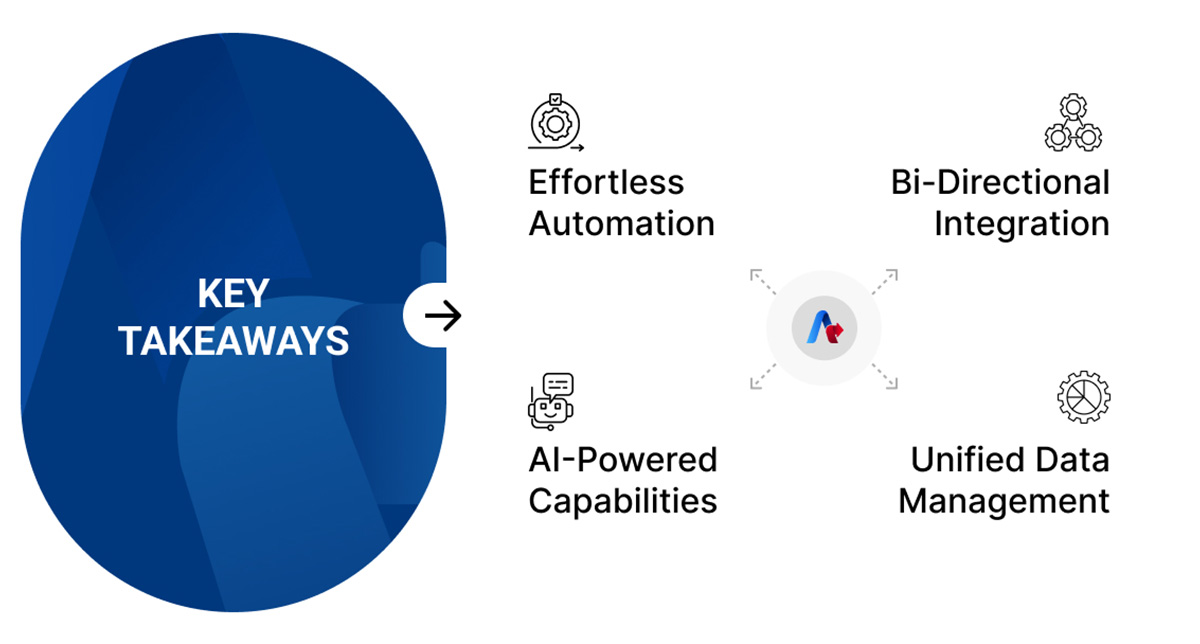In the realm of enterprise resource planning and customer relationship management, Salesforce stands as a cornerstone platform, empowering organizations to manage their sales, marketing, and customer service operations efficiently. However, as businesses evolve, and processes become more complex, manual data entry, repetitive tasks, and siloed workflows can impede productivity and hinder scalability. This is where UiPath, a leading Robotic Process Automation (RPA) solution, steps in, seamlessly integrating other systems with Salesforce to drive greater efficiency.
How Can Businesses Leverage Uipath's Integration with Salesforce to Achieve Maximum Efficiency and Customer Satisfaction?
UiPath's integration with Salesforce brings a myriad of benefits to businesses, enabling teams to automate repetitive tasks, enhance data accuracy, and streamline processes across the entire lifecycle of a process involving Salesforce. One of the primary advantages is the elimination of manual data entry in external systems. With UiPath robots, organizations can automatically capture, validate, and update customer information, leads, opportunities, and other critical data within Salesforce, and act upon it in downstream systems ensuring real-time accuracy and consistency across systems of record. This not only saves valuable time but also minimizes the risk of human error, leading to improved data quality and reliability.

Moreover, UiPath enables advanced automation scenarios within Salesforce, empowering organizations to orchestrate complex workflows and trigger actions based on predefined rules and conditions. The UiPath Salesforce integration is bi-directional. This means that not only can robots perform actions in Salesforce via a robust API interface, but external workflows can also be triggered from directly within Salesforce, facilitating Salesforce automation using UiPath. For instance, businesses can automate assignments, and follow-up processes, ensuring timely engagement with prospects and maximizing conversion rates. Additionally, UiPath salesforce connector enables seamless data synchronization and integration with other enterprise systems, such as ERP or marketing automation platforms. This facilitates a unified view of customer data and enables cross-functional collaboration, driving greater insights and decision-making agility.
Can UiPath's Advanced AI Capabilities Revolutionize Salesforce Automation?
UiPath's capabilities extend beyond traditional RPA, offering advanced features such as artificial intelligence (AI) and machine learning (ML) to enhance Salesforce automation further. By leveraging AI-powered chatbots, natural language processing (NLP), and predictive analytics, organizations can automate customer service inquiries, personalize interactions, and anticipate customer needs more effectively. This not only improves customer satisfaction but also empowers sales and service teams to focus on high-value tasks, driving revenue growth and operational excellence.
In what ways do you envision a bi-directional integration benefiting your sales and customer service workflows? Let’s discuss.
Ready to Experience the Full Potential of Salesforce and UiPath?
The integration of UiPath with Salesforce, facilitated by UiPath implementation partners like Accelirate, represents a paradigm shift in enterprise automation, enabling organizations to unlock the full potential of their Salesforce investment and drive digital transformation at scale. By automating routine tasks, enhancing data accuracy, and leveraging advanced AI capabilities, businesses can streamline workflows, improve productivity, and deliver exceptional customer experiences. As businesses navigate the evolving landscape of sales and customer service, UiPath stands as a strategic partner, empowering organizations to stay ahead of the curve and thrive in the digital age.






